Board of Directors
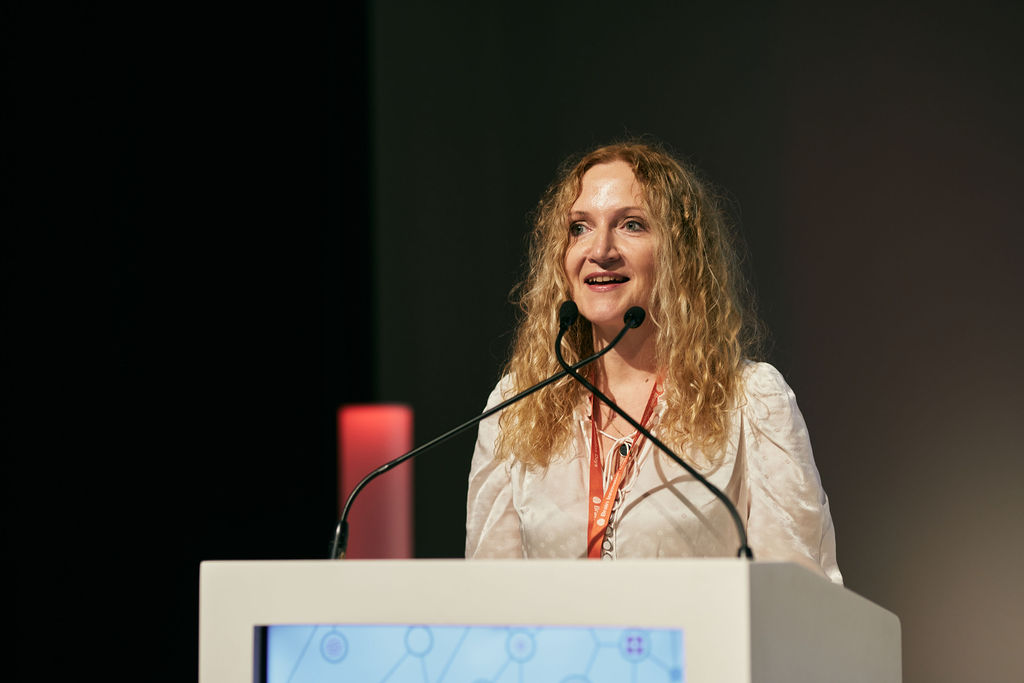
Prof. Suzanne Dickson
PRESIDENT
Professor Suzanne L Dickson is a neurobiologist and Professor of Neuroendocrinology at the University of Gothenburg. She graduated with a Ph.D. in Neuroendocrinology from the University of Cambridge in 1993, where she later became Senior Lecturer in Physiology. She is a leading figure in neuroendocrinology and works within many European Union and international organisations and societies to promote research, facilitate grant funding and training of Early Career Scientists. Her research into the neurobiology of appetite aims to unravel neurobiological pathways that respond to orexigenic signals, such as the hormone, ghrelin, and that drive feeding behaviours, not only food intake but also food choice, food anticipation, food reward and food motivation. This work involves mostly preclinical studies and includes behavioural tasks, viral vector mapping, chemogenetics and RNAscope. She is Secretary and Executive Board member of the European College for Neuropsychopharmacology, and also chairs ECNP’s Workshop for Early Career Scientists in Europe. She also is founder and co-chair of ECNP’s nutrition network and EBRA’s BRAINFOOD cluster.
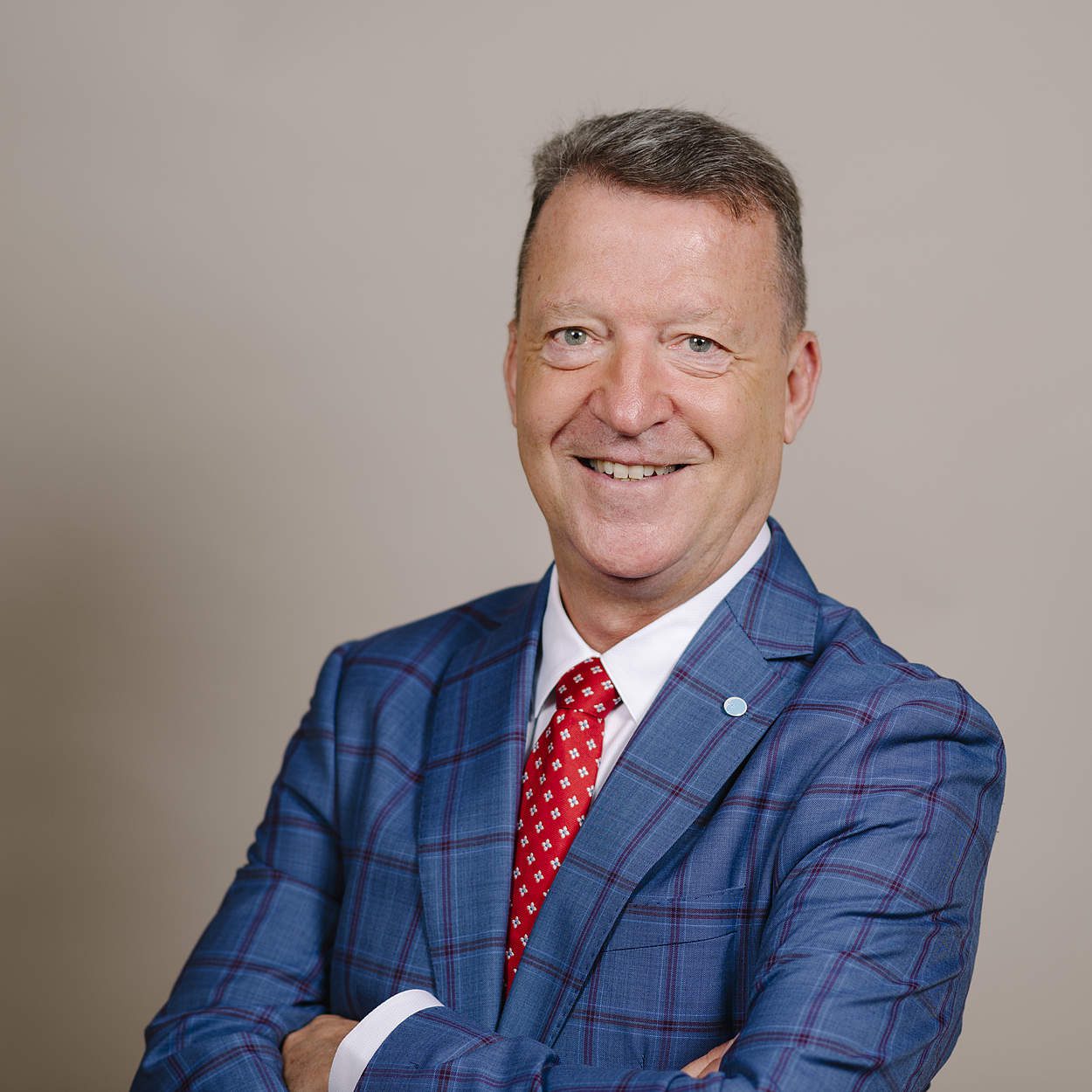
Prof. Claudio Bassetti
VICE-PRESIDENT
Professor Claudio Bassetti has been full professor and chair of neurology at the University Hospital in Bern since 2012. He received his medical degree in Basel and trained in neurology in Bern and Lausanne. In 2000, he became professor and vice-chair of neurology in Zurich. In 2009 he founded the Neurocenter of Southern Switzerland.
He completed his research fellowships in basic neurophysiology in Basel and sleep in Ann Arbor, Boston and Madison. His major scientific interests are the relationship between sleep and neurological disorders, narcolepsy, and the teaching of general neurology. He uses clinical and experimental approaches and has published more than 500 articles and eight books.
Prof. Bassetti has previously served as president of the European Neurological Society, European Sleep Research Society and Swiss Neurological Society, and founded the Swiss Federation of Clinical Neurosocieties. He is an elected member of the Swiss Academy of Medical Sciences, which he served as board member for eight years. He has been president of the European Academy of Neurology since 2020 and was appointed Dean of the Medical Faculty in Bern that same year.
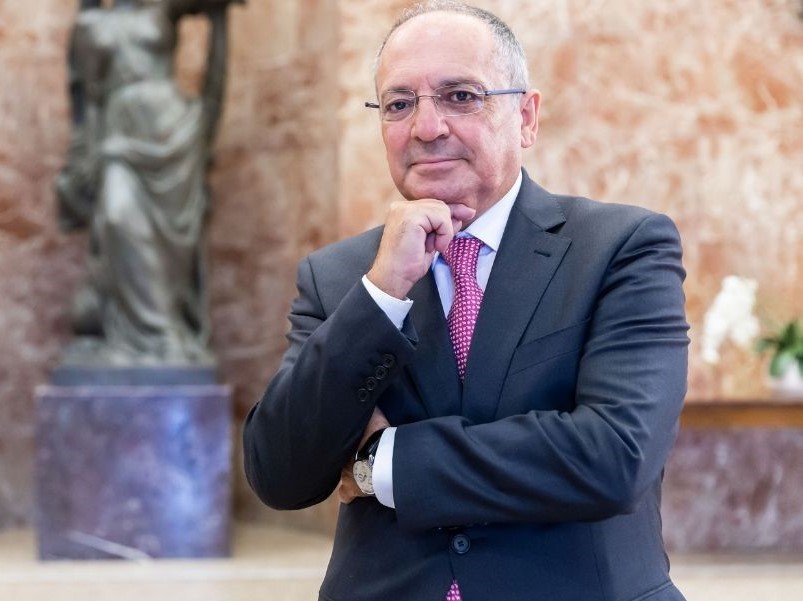
Prof. Juan Lerma
VICE-PRESIDENT
Professor Juan Lerma is a Professor at the Spanish National Research Council (CSIC). His research is related to the molecular basis of neuronal communication, specifically the mechanisms used by glutamate and its receptors in synaptic transmission and plasticity to orchestrate fundamental physiological activities and trigger brain diseases when they are deregulated. He has been Director of the Institute of Neurosciences CSIC-UMH; President of the Spanish Society of Neuroscience (SENC); President of the Pan-European Regional Committee of the International Brain Research Organisation (IBRO) and Secretary General of the Federation of European Neuroscience Societies (FENS). Currently, he is Editor-in-Chief of Neuroscience, Director of the Cajal International Neuroscience Centre (CINC-CSIC) and Councilor of the Society for Neuroscience (SfN).
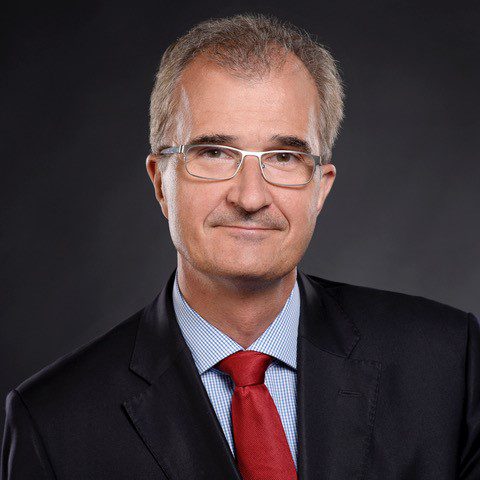
Prof. Peter Falkai
TREASURER
Prof. Dr. Med. Peter Falkai has been working in the field of psychiatry for 30 years. His main research interest is focused on the neurobiology of psychotic disorders, namely schizophrenia. He holds the position of Chair of the Department of Psychiatry and Psychotherapy of the University of Munich and is currently President of the European Psychiatric Association.
Prof. Falkai has been leading multidisciplinary teams of researchers, allowing the use of techniques ranging from functional imaging to gene expression in human post-mortem-tissue. His clinical and research expertise focuses continuously on the neurobiological origins and pathomorphological aspects as well as on causal treatment options of psychotic disorders.
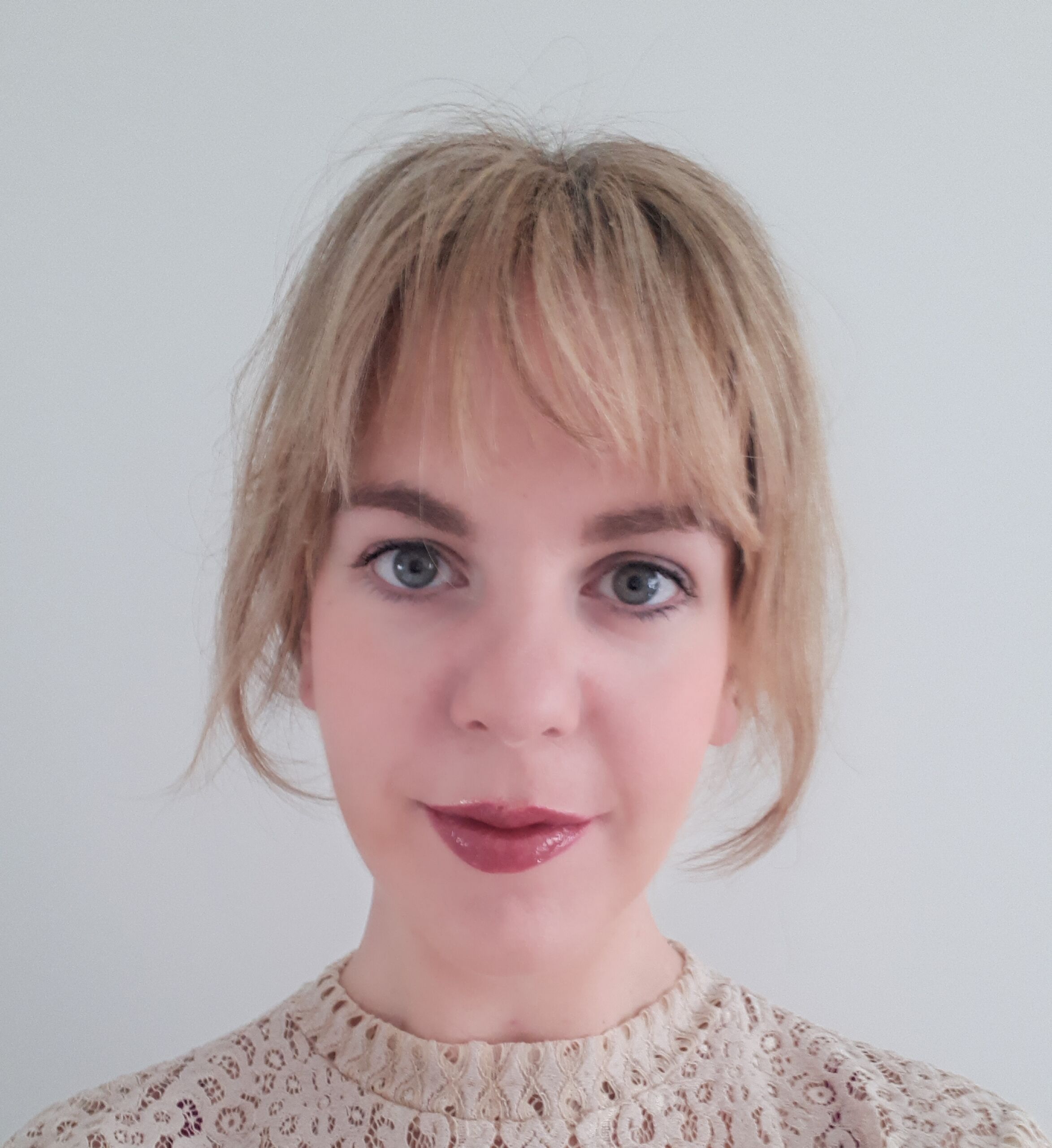
Dr Orla Galvin
Dr. Orla Galvin came to patient advocacy with a PhD in Medicine and background in drug discovery and design in both academic and industry environments. Transitioning to advocacy work at the umbrella patient organisation Retina International, Orla led high impact, multi-stakeholder socio-economic studies, patient preference studies, and accessibility studies across the globe assessing both rare and common conditions.
Orla is an internationally invited speaker to both research and clinical learned societies (for example EURORDIS, EU Retina, ERN-EYE), patient organisations, and industries on topics such as:
- Patient and public involvement in advocacy, research and policy,
- Research in advocacy and policy/evidence-based advocacy,
- Education in advocacy,
- Generation of real-world data,
- Patient reported outcomes, and
- Health economics
She is currently Executive Director of the European Federation of Neurological Associations (EFNA).
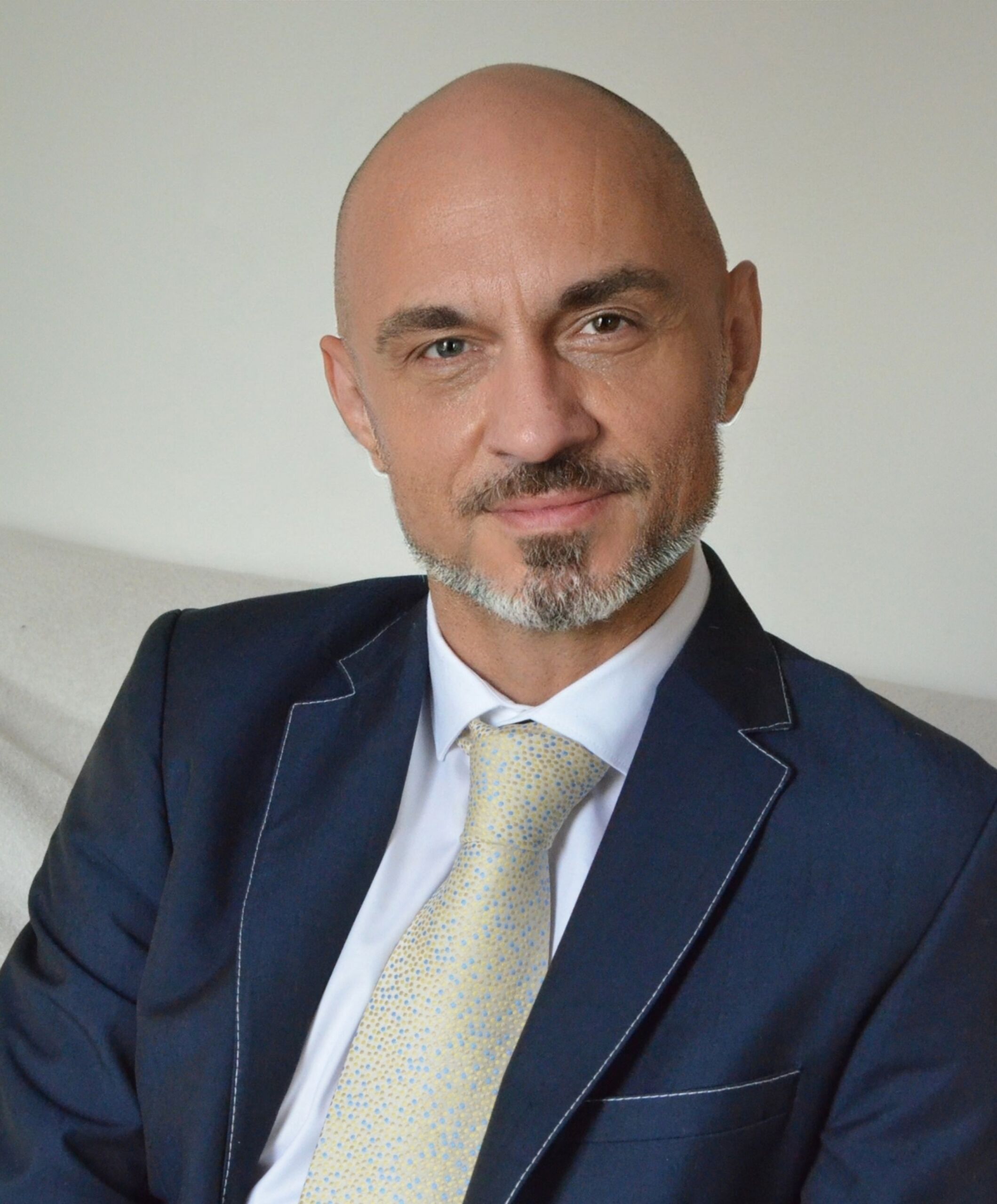
Péter Kéri
Péter Kéri is a peer-support professional with background in education, public relations, and mental health advocacy. Graduating as a teacher, he earned his first diploma. His journey continued as he pursued a second diploma in PR at the Metropolitan University.
Currently serving as the head of international relations, grants, and innovations at the Awakening Foundation in Hungary, Kéri Péter plays a pivotal role in fostering global connections and driving innovative initiatives. Kéri Péter holds the position of President at GAMIAN-Europe, the continent’s leading organization dedicated to supporting patients struggling with mental health challenges. He further contributes to the field as a Board Member of the European Psychiatric Association.
Since 2013, Kéri Péter has been at the forefront of exploring innovative approaches that complement traditional research methodologies. His commitment to enhancing patient care is evident through his role as the project leader of the Expert by Experience pilot project initiated by the foundation. His focus revolves around empowering patients within the social and healthcare systems, advocating for their involvement in decision-making processes. He is dedicated to identifying both facilitators and barriers related to patient participation and effectively communicating these findings to decision-makers on both national and international fronts. Beyond his organizational roles, Kéri Péter is a speaker, and contributor to scientific publications in the field of mental health. His passion for driving positive change is reflected in his numerous international presentations, research endeavors, and contributions to scientific discourse.
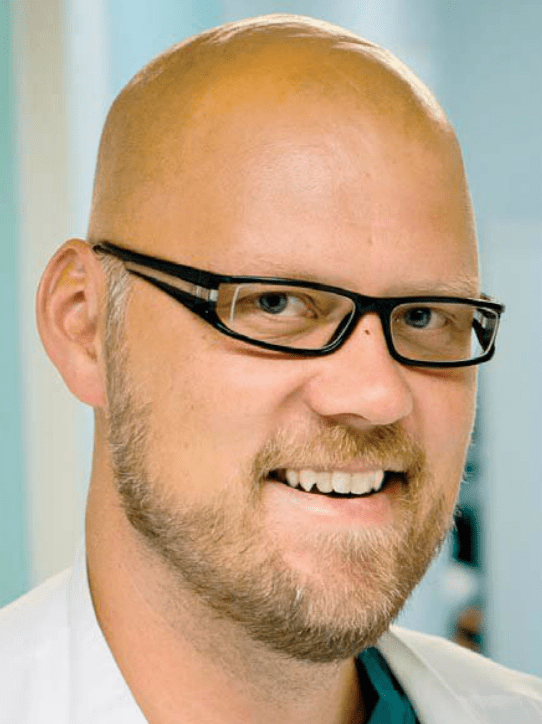
Dr Aki Laakso
Dr Aki Laakso currently works as a neurosurgeon and chief physician at Neurocenter of HUS Helsinki University Hospital, where he was also trained. He has previously also worked as professor and chair of Department of Neurosurgery at Oulu University Hospital. A specialist in neurosurgery since 2009, his main clinical interests lie in microneurosurgical treatment of intrinsic brain tumors and cerebrovascular neurosurgery. He is Research Committee Chair at the European Association of Neurosurgical Societies.
His scientific background is quite diverse for a clinical microneurosurgeon. Early in his academic career, his focus was neurobiology of neuropsychiatric diseases, utilizing methods such as neurotransmitter PET imaging in human subjects and biochemical and behavioral analysis of genetically altered mouse strains. Following completion of his PhD thesis, he worked shortly in a pharmaceutical company designing phase II and III trials, before undertaking a 3-year post-doctoral fellowship at Duke University. During his neurosurgical career, his research has mostly focused on brain arteriovenous malformations, intracranial aneurysms, and surgical techniques. He considers teaching as an essential part of the profession, and has supervised five MD PhD theses, all in neurosurgical topics. He has also been part of the EANS Training Course faculty since 2011.

Dr José L. Lanciego
José L. Lanciego is a Senior Scientist at the Center for Applied Medical Research (CIMA) and Associate Professor of Neurosciences at the University of Navarra Medical School, Pamplona, Spain. Originally trained as a Medical Doctor (University of Salamanca, June 1990), he received his PhD in Neuroscience with honors at the University of Salamanca (October, 1994). Later on he joined the Department of Anatomy & Neurosciences of Amsterdam Vrije Universiteit, as a postdoctoral fellow under the supervision of Dr. Floris. G. Wouterlood. Upon return from Amsterdam he was recruited by the University of Navarra (February, 1997) to further lead the Laboratory of Functional Basal Ganglia Neuroanatomy. His ongoing research interest included a number of projects dealing with the pathophysiology of Parkinson’s disease using non-human primate animal models. At present, he is serving as Associate Editor of Frontiers in Neuroanatomy and Frontiers in Molecular Neuroscience as well as a member of the Editorial Board of Brain Structure and Function, International Journal of Medical Sciences and Frontiers in Neuropharmacology. Between 2017 and 2023 he joined the Council of the International Basal Ganglia Organization (IBAGS). He was a former member of the Board of the Committee for Higher Education and Training of the Federation of European Neuroscience Societies (FENS-CHET; 2020-2022). In parallel, he was appointed as a Board Member of the International Brain Research Organization Pan-European Committee (IBRO-PERC) between 2020 and 2022, later on being appointed as Chair of IBRO-PERC until the end of 2025. José L. Lanciego’s current research focuses on gene therapy approaches for neurodegenerative diseases, with a main focus on Parkinson’s disease and related synucleinopathies. He has published more than 130 papers in international scientific journals with an h index of 48.
José L. Lanciego’s current research focuses on gene therapy approaches for neurodegenerative diseases using non-human primate models. He is the Chair of the International Brain Research Organization Pan-European Committee, a Board Member of the European Brain Council and the International Basal Ganglia Society Council. He has published 132 papers with an h index of 48. Since December 2006 his research team has been recognized as “group of excellence” by the Spanish Ministry of Health, therefore joining the so-called Research Network Center in Neurodegenerative Disorders (CiberNed) as a founding member. In September 2019, he has co-founded Handl Therapeutics B.V. for pushing forward the development of novel gene therapies for Parkinson’s disease.
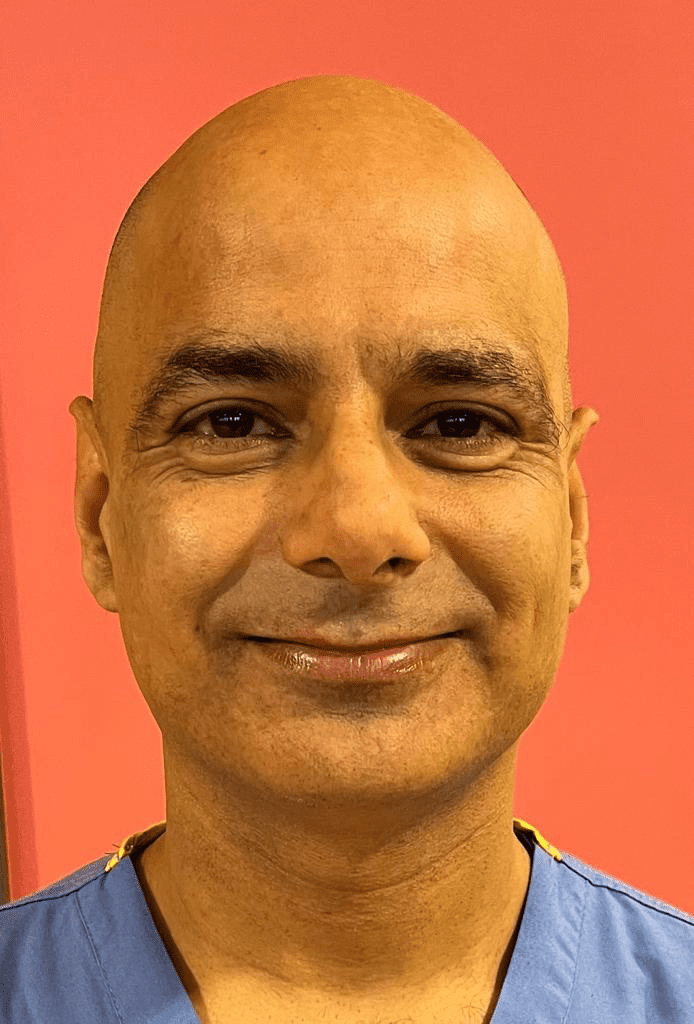
Prof. Sameer Zuberi
Professor Sameer Zuberi is a Consultant Paediatric Neurologist at the Royal Hospital for Children, Glasgow and Honorary Professor within the School of Medicine and School of Health & Wellbeing at the University of Glasgow leading the Paediatric Neurosciences Research Group. His other national and international roles include Clinical Lead of the Scottish National Genetic Epilepsy Service, National and International roles include Member of the ILAE Terminology Commission, Member of the Executive Committee of the European Brain Council, Board Member of the European Paediatric Neurology Society and Member of the Women & Children’s Health Innovation Leadership Group and Steering Group Member of the UK National Epilepsy Research Collaborative.
Professor Zuberi was President of the European Paediatric Neurology Society from 2018 until early 2022, and Editor-in-Chief of the European Journal of Paediatric Neurology from November 2014 until early 2021. He chaired the International League Against Epilepsy Commission on Classification and Terminology from 2013-17. His term concluded with the publication of updated position papers on seizure types and epilepsy classification, the first since 1989.
Professor Zuberi’s primary research interests are in epilepsy, movement disorders, channelopathies and neurological sleep disorders. During his MD he studied the emerging field of the ion channelopathies and has built a research career and team identifying genetic aetiologies of neurological disorders, defining genotype phenotype relationships and undertaking RCTs of new medications through national and international collaborations.
Professor Zuberi has been leading on the development of a secure video transfer technology to aid diagnosis, classification & management in neurology patients. vCreate Neuro has been funded nationally in Scotland across all paediatric and adult neurology centres, as well as numerous additional centres across the United Kingdom and Internationally.

